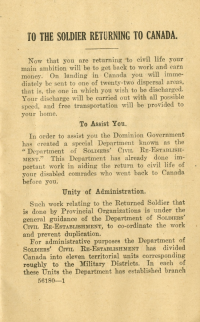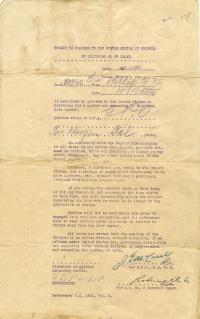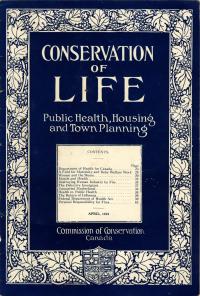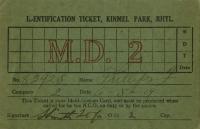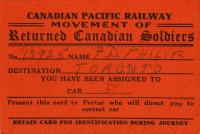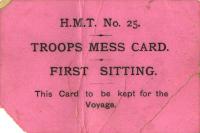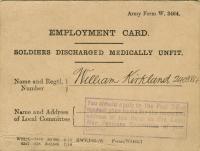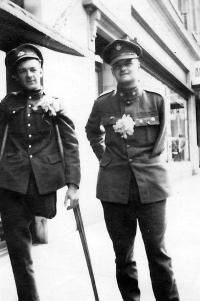Returning
To the Soldier Returning to Canada
Following the First World War, veterans experienced significant challenges - mental illness, physical disability, unemployment - as they integrated back into civilian life. This booklet provided returning soldiers with the information they needed to navigate the transition.
Back to Civil Life
This booklet, published after the Second World War, was aimed at help returning soldiers overcome the challenges they faced, with information on training and educational programs, job placements, health care, pensions, and more.
Back to Civies
Soldiers returning to Canada from overseas faced myriad issues when they arrived home. Many were wounded, unemployed, or had simply forgotten how to live in 'civies' after being away for so long. This booklet, published by the Soldiers' Aid Commission, attempted to help soldiers with these issues. Various organizations, and the services they offered, were listed in this book, with the common denominator being that all were offered free of charge to returning soldiers.
Uniform Permit
Fraser Philip of the 15th Battery, Canadian Field Artillery (CFA), received this permit in order to wear his uniform in San Diego, California, on discharge in May 1919. The permit laid out rules that soldiers in uniform in public were required to follow, such as not drinking liquor in communal places.
Conservation of Life
The Commission of Conservation Canada was established to provide Canadian governments with relevant scientific information regarding the conservation of both natural and human resources, including the well-being of Canadians on a physical level. This issue of Conservation of Life published in April 1919 dealt with postwar reconstruction and had several foci, such as maternity, morality, and health.
Kinmel Park identification ticket
Kinmel Park in Wales was the site of a serious riot in March 1919 among Canadian soldiers awaiting demobilization. Identification cards were issued (this one to F.D. Philip of the 15th Battery, Canadian Field Artillery) in the aftermath of the riot to allow the authorities to exercise better control over the camp.
CPR Movement of Returned Soldiers
The Canadian Pacific Railway was one of the transportation companies used to send soldiers home after demobilization. Cards like this, belonging to Fraser Philip of the 15th Battery, Canadian Field Artillery (CFA), were given to soldiers for identification purposes.
Troops Mess Card
Upon demobilization, troops were given vouchers for meals aboard ships on their return home. This troops mess card was given to William Winter of the 79th Battery, Canadian Field Artillery (CFA). Winter was returned to Canada in March 1919 on HMT Royal George; his temporary home on the vessel was deck E, section 3, bunk #325.
Employment Card
Disability employment cards were given to soldiers who had been discharged as medically unfit. The cards acted as a form of identification for ex-soldiers who went before a local committee to apply for aid upon their return.
The cost of war
In the years after the First World War, the limbless veteran was a frequent sight in Canada - a constant reminder of the cost of war.

